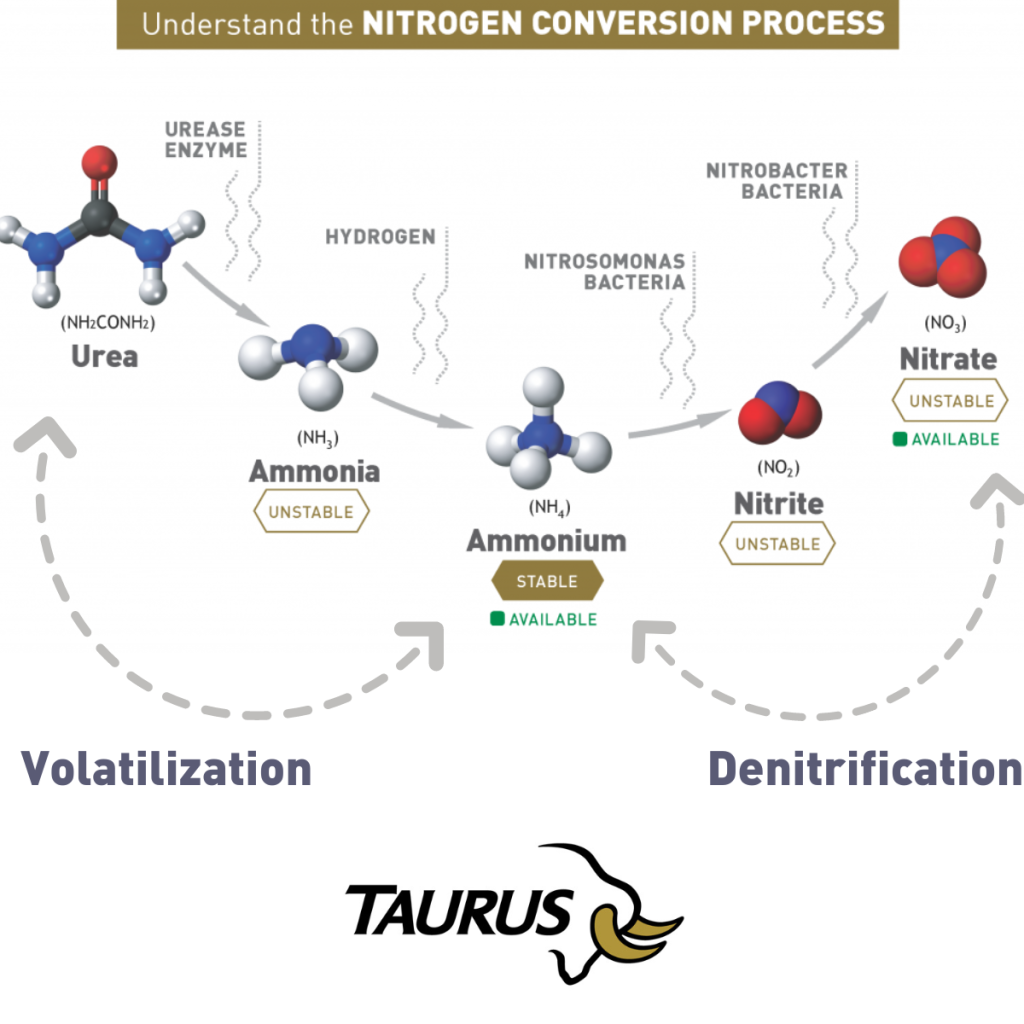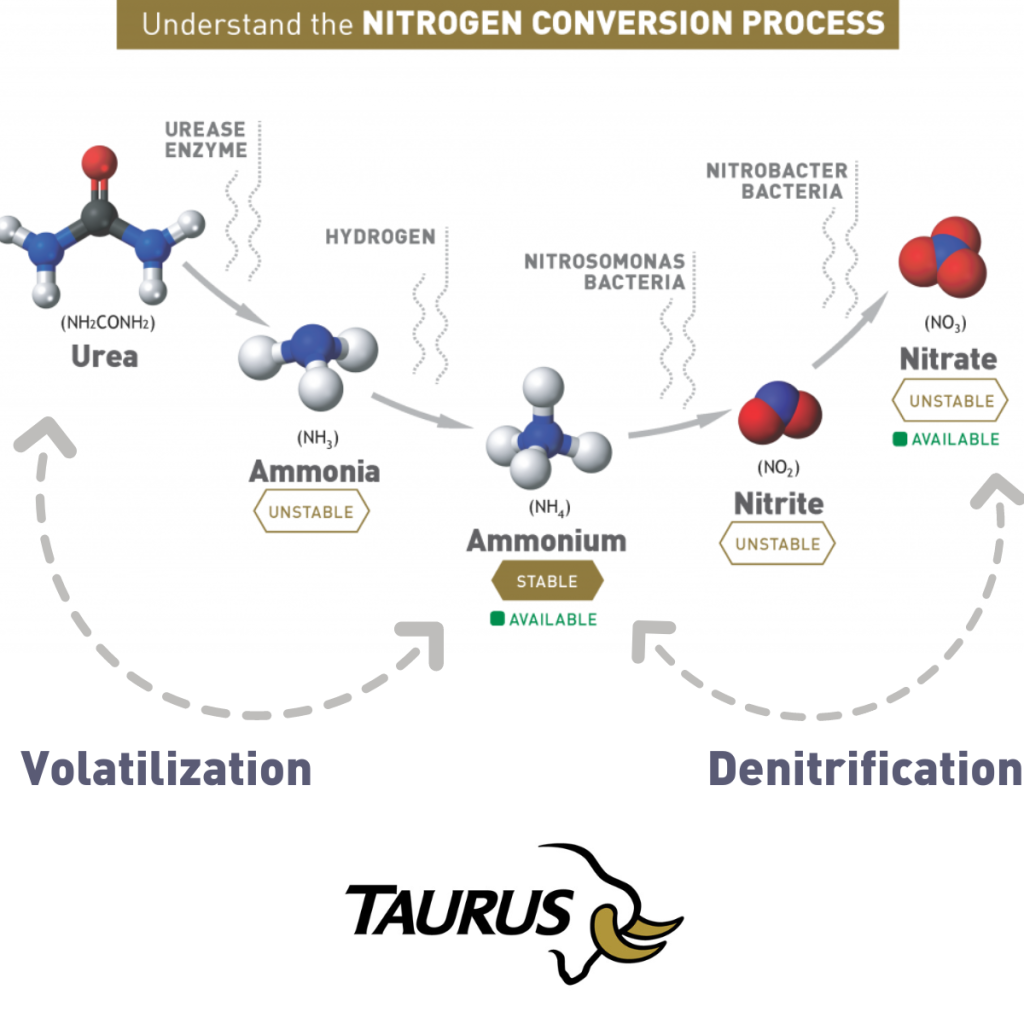
Harnessing Nitrogen Inhibitors: Combating Nitrogen Volatilization & Denitrification for Agricultural Efficiency and Sustainability in Canada

It’s a scene the industry knows all too well; The investment of time, effort, and money into applying nitrogen fertilizer to fields, only to have a portion of that valuable resource vanish into thin air. Volatilization and denitrification are threats to agriculture globally, with far-reaching consequences. Fortunately, nitrogen inhibitors offer a solution to this issue, promoting sustainable farming practices and improving crop yields.
Demystifying Nitrogen Volatilization
Nitrogen volatilization is the process by which nitrogen in fertilizer is converted to ammonia gas (NH3) and escapes into the atmosphere, resulting in the loss of this crucial plant resource. This process predominantly affects urea-based fertilizers. Urea is converted by a soil enzyme called urease, which produces volatile ammonia gas (NH3). Before the soil can buffer enough hydrogen to stabilize ammonia gas (NH3) into a stable and plant-available form of ammonium (NH4+), it escapes into the atmosphere.
The Importance of Addressing Denitrification
Nitrification is a natural process carried out by certain soil bacteria, such as Nitrosomonas and Nitrobacter. These bacteria transform ammonium (NH4+), a form of nitrogen that plants can use, into nitrite and then nitrate (NO3-). Although nitrate is also a usable form of nitrogen for plants, it can be problematic in certain soil types.
In sandy soils, nitrate is more likely to leach away, while in heavy clay or waterlogged soils, it tends to undergo denitrification. During denitrification, microbes in the soil remove oxygen from nitrate (NO3-) and turn the nitrogen back into a gaseous form.
The Power of Nitrogen Inhibitors
Research at the University of Manitoba in 2021 has demonstrated that with the utilization of inhibitors, an average of 84.4% of nitrogen was saved over a 14-day period compared to untreated fertilizer. Nitrogen inhibitors effectively mitigate nitrogen volatilization and denitrification, ensuring that a higher proportion of applied nitrogen remains accessible to crops. These products are available in two primary categories:
Urease Inhibitors: These compounds temporarily inhibit the action of the urease enzyme, delaying the conversion of urea to ammonia and allowing more time for the soil to stabilize the ammonia into ammonium, thus reducing volatilization risks. NBPT (N-(n-butyl) thiophosphoric triamide) is a widely used urease inhibitor, helping retain nitrogen in the soil rather than the atmosphere.
Nitrification Inhibitors: These substances slow the conversion of ammonium (NH4+) to nitrate (NO3-). By maintaining nitrogen in the ammonium form for a longer duration, nitrification inhibitors help reduce nitrogen loss. DMPP (Dimethylpyrazole Phosphate), Nitrapyrin and DCD (dicyandiamide) are notable examples of nitrification inhibitors that aid in effective nitrogen management.
The Bottom Line
By incorporating nitrogen inhibitor products into agricultural practices, we can ensure that crops have access to the essential nutrients that they need to flourish, resulting in higher yields and increased profits. Simultaneously, these practices contribute to environmental protection and sustainability, benefiting current and future generations. In conclusion, adopting nitrogen inhibitors offers a compelling win-win solution for agriculture and the environment alike.
Arm U Advanced
Dual-action nitrogen saving technology that inhibits both ammonia volatilization and nitrification
